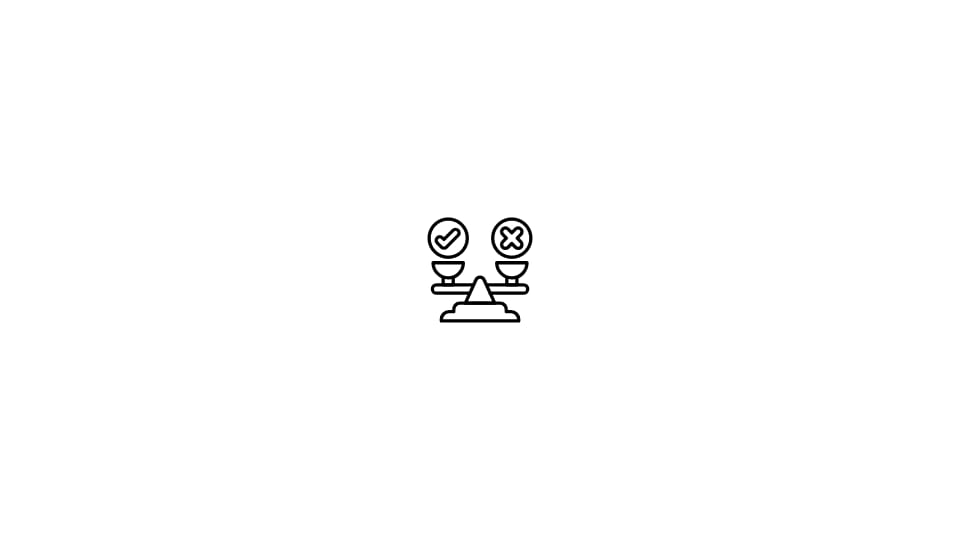When creating content for social media, blogs, or videos, it’s critical to ask: “Does my post align with ethical and professional content creation?” This single question ensures that medical content remains accurate, responsible, and truly beneficial to the audience.
But what does ethical and professional content actually mean? Let’s break it down.
Key Principles of Ethical Healthcare Content
✅ Do: Base your content on research, peer-reviewed studies, and established medical guidelines. Always cite credible sources.
❌ Avoid: Sharing unverified claims, anecdotal evidence as universal truth, or sensationalized headlines.
🔹 Example:
Unethical: “This herbal remedy will cure diabetes—no need for medications!”
Ethical: “Some studies suggest this herbal remedy may help with blood sugar levels, but it’s not a replacement for medical treatment. Always consult your doctor first.”
2️⃣ No Fear-Mongering: Avoid Creating Unnecessary Panic
✅ Do: Present risks with context, using a balanced, informative tone.
❌ Avoid: Using scare tactics or exaggerating threats to increase engagement.
🔹 Example:
Unethical: “This food is TOXIC! Never eat it again!”
Ethical: “Certain foods can pose risks for specific conditions. Here’s what you should know before including them in your diet.”
3️⃣ No Overpromising or Oversimplifying: Be Transparent About Limitations
✅ Do: Clarify that treatments and medical advice depend on individual conditions and should be evaluated by a professional.
❌ Avoid: Making absolute statements that may mislead patients into thinking a solution works for everyone.
🔹 Example:
Unethical: “Intermittent fasting is the best way to lose weight.”
Ethical: “Intermittent fasting can help some people lose weight, but it’s not ideal for everyone. Here’s how to determine if it’s right for you.”
4️⃣ Respecting Boundaries: Protect Patient Confidentiality & Privacy
✅ Do: Share generalized cases or anonymized patient stories without revealing personal details.
❌ Avoid: Posting identifiable patient information or sharing sensitive medical cases without consent.
🔹 Example:
Unethical: Posting a patient’s X-ray with visible details or sharing a personal diagnosis without anonymization.
Ethical: Sharing case studies with all personal identifiers removed and emphasizing the broader medical implications.
5️⃣ Encourage Proper Medical Consultation: Empower, Don’t Replace Professional Advice
✅ Do: Make it clear that social media content is for education, not diagnosis or treatment.
❌ Avoid: Suggesting that viewers can self-diagnose or self-treat based solely on the information provided in your content.
🔹 Example:
Unethical: “You probably have a magnesium deficiency if you feel tired all the time. Start supplementing now!”
Ethical: “Feeling tired all the time? There are many possible causes, including magnesium deficiency. Talk to your doctor to explore the right tests and solutions for you.”
How to Ensure Your Content Meets Ethical Standards
Before publishing, ask yourself these five critical questions:
✅ Is my content fact-based, research-backed, and free from misleading claims?
✅ Am I presenting information without fear-mongering or exaggeration?
✅ Does my content clarify that medical treatments vary by individual?
✅ Am I respecting patient confidentiality and following ethical guidelines?
✅ Did I remind my audience that this content does not replace professional medical consultation?
📌 If the answer is ‘No’ to any of these, revise your content before posting!
Final Thoughts: Why Ethical Content Matters
As a healthcare professional, your content doesn’t just inform—it influences behavior. The responsibility of ethical medical content creation is ensuring that what you share is accurate, responsible, and ultimately benefits your audience.
✅ Make it engaging.
✅ Make it clear and actionable.
✅ Make it responsible.
By holding ourselves to the highest ethical standards, we can create content that not only educates but also protects and empowers people to make informed health decisions.
Thanks for reading, and don’t forget that you can leave your comments or insights about this topic.

